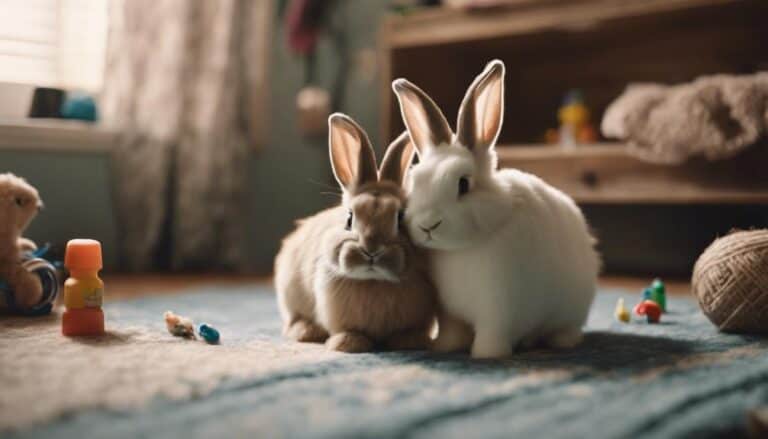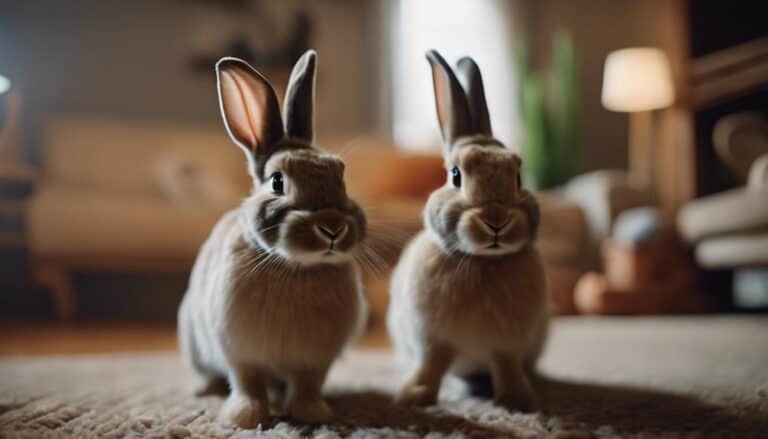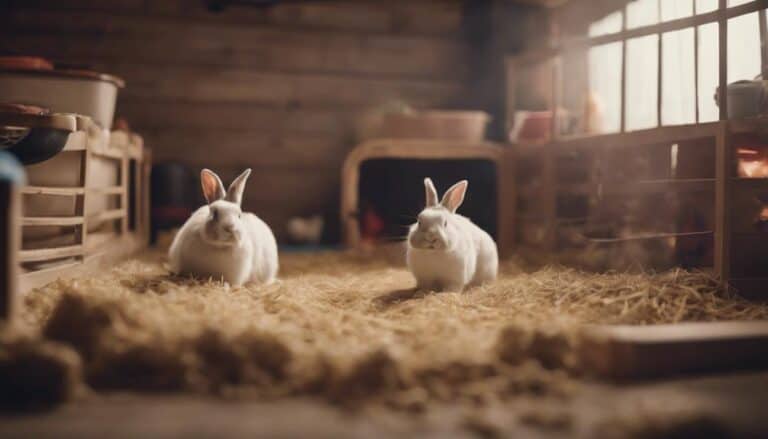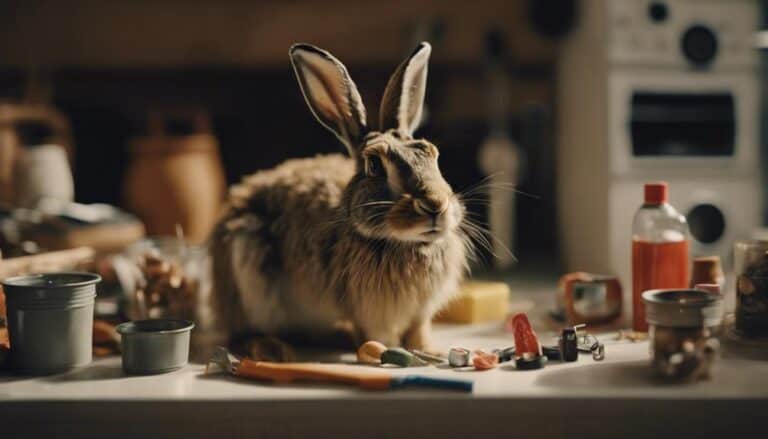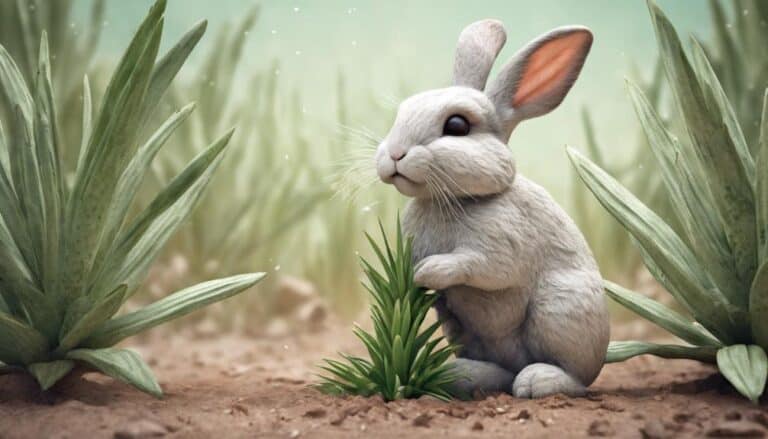So you're wondering why your adult male rabbit has suddenly started biting your hand?
There are a few factors that could be influencing this behavior. For one, hormonal changes as your rabbit matures can trigger territorial aggression, which may manifest as biting.
But that's not the only possible reason behind this behavior. It's also worth considering whether your rabbit is in pain or discomfort, which could be causing him to lash out. Maybe he's got an underlying medical issue that needs to be addressed.
Additionally, your rabbit might be feeling anxious or stressed, leading him to bite. This could be due to changes in his environment or even your own behavior around him.
By understanding the root cause of your rabbit's biting, you can take steps to address it effectively and foster a harmonious relationship with your furry companion.
Contents
Key Takeaways
So, you're wondering why your adult male rabbit has started biting your hand? There are a few possible reasons for this behavior.
For one, hormonal changes in adult male rabbits can trigger aggression. As they mature, their hormones can fluctuate, leading to irritability and biting.
Another possibility is that your rabbit is feeling fearful or uncomfortable. When they're scared or in pain, they may bite as a way to defend themselves.
Lack of mental and physical stimulation can also result in biting. If your rabbit is bored or not getting enough exercise, they might release their pent-up energy by nipping at your hand.
To address this behavior, it's essential to observe your rabbit's body language. Are they tense, flattening their ears, or showing their teeth? These signs can indicate that they're feeling anxious or threatened.
Instead of scolding or punishing your rabbit, try using positive reinforcement and redirection. Reward them with treats when they exhibit calm behavior, and redirect their attention to toys or other acceptable outlets for their energy. With patience and consistency, you can help your rabbit overcome their biting habit.
Common Reasons for Sudden Biting
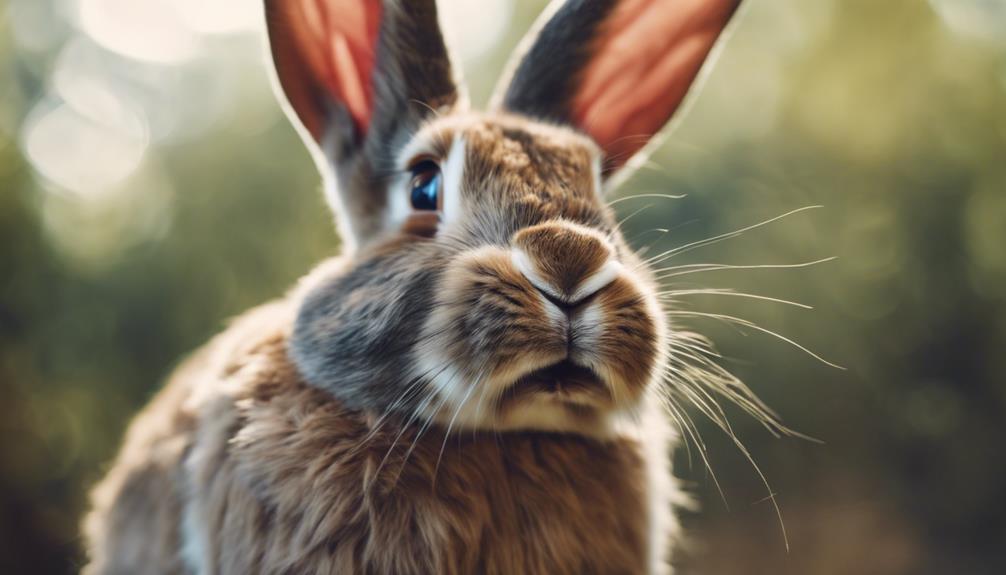
Sudden biting can be distressing when your rabbit does it to your hand. But knowing the common reasons behind this behavior can help you address and prevent it. Rabbits may bite out of fear, pain, or even a desire to assert dominance, so understanding their body language is essential for your safety and theirs. To foster a calmer environment, always approach your rabbit gently and allow them to come to you on their own terms. For more insight into preventing and handling bites, it’s crucial to familiarize yourself with rabbit bite safety facts that can help you navigate these situations effectively.
One reason your rabbit might bite is because it feels scared or threatened. If your rabbit perceives a situation as dangerous or feels cornered, it may bite as a way to protect itself. To reduce the chances of defensive biting, create a calm and safe environment for your rabbit.
Another reason for sudden biting could be due to pain or discomfort. If your rabbit is in physical discomfort, it may lash out by biting when you try to handle it. Keep an eye on your rabbit's body language and seek veterinary care if you suspect any underlying health issues.
Hormonal Changes and Aggression
If your rabbit is suddenly acting aggressive, hormonal changes might be the reason. This is especially true for male rabbits, who can experience fluctuations in hormones that make them more aggressive towards you or other animals.
Understanding these hormonal changes can help you manage your rabbit's behavior more effectively. For instance, male rabbits often become more aggressive when they reach sexual maturity.
Hormonal changes can also make rabbits more protective of their territory, which can lead to aggressive behavior. Additionally, changes in hormones can affect your rabbit's ability to bond with you or other pets in the household.
Sometimes, hormonal fluctuations can increase stress levels in rabbits, triggering aggressive behavior. In some cases, hormonal changes can be a sign of an underlying health issue that needs to be addressed promptly.
Signs of Boredom or Discomfort
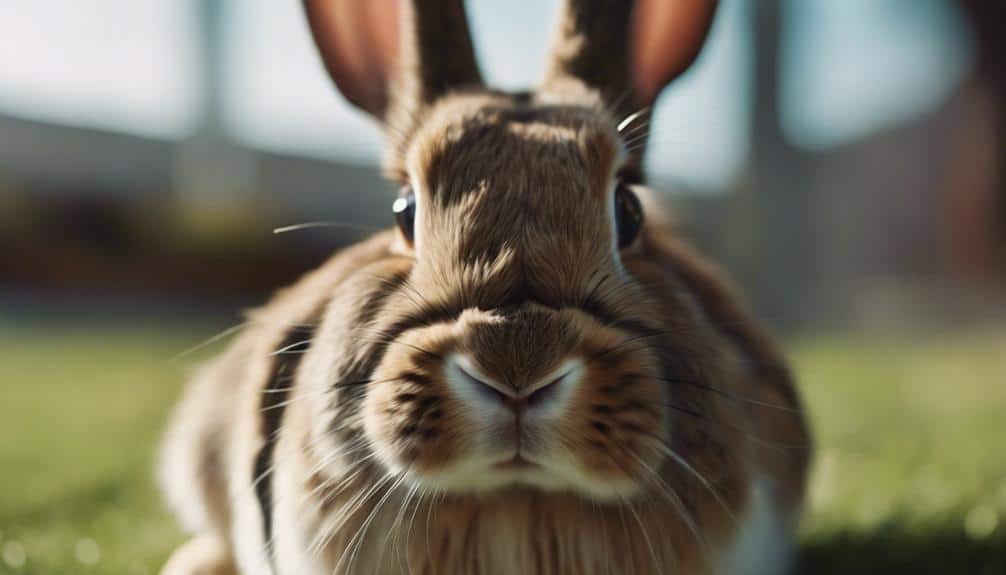
Rabbits are intelligent creatures that need mental and physical stimulation to thrive. If they don't get it, they can get bored. You might notice your rabbit is bored if they're chewing, digging, or even being aggressive more than usual.
One way to deal with boredom is to provide enriching activities. Puzzle feeders, toys, and tunnels can help alleviate their restlessness.
But if your rabbit is uncomfortable, they might show it in different ways. For example, they might grind their teeth, thump their hind legs, or avoid human contact.
If you notice these behaviors, it's possible your rabbit is in pain or ill. In that case, it's crucial to get advice from a vet who's experienced in caring for rabbits. They can help figure out if there's an underlying health issue.
Observing Body Language for Cues
When you're observing your rabbit's behavior, it's essential to pay attention to their body language. Rabbits communicate a lot through their body language, so understanding what they're trying to express can help you address any issues that might be leading to biting behavior.
Take ear position, for instance. If your rabbit's ears are flattened against their head, they're probably feeling scared or threatened.
Another cue to look out for is tail movement. If their tail is thumping or moving rapidly, it can indicate agitation or frustration.
The way your rabbit carries themselves also says a lot. If they've a hunched posture, they might be in pain or uncomfortable.
Their eyes can also give away their emotional state. Wide-open eyes usually signify fear, while half-closed eyes indicate relaxation.
Lastly, pay attention to your rabbit's body tension. If they're stiff or suddenly tense up, it may signal discomfort or a readiness to bite.
Strategies to Address Biting Behavior
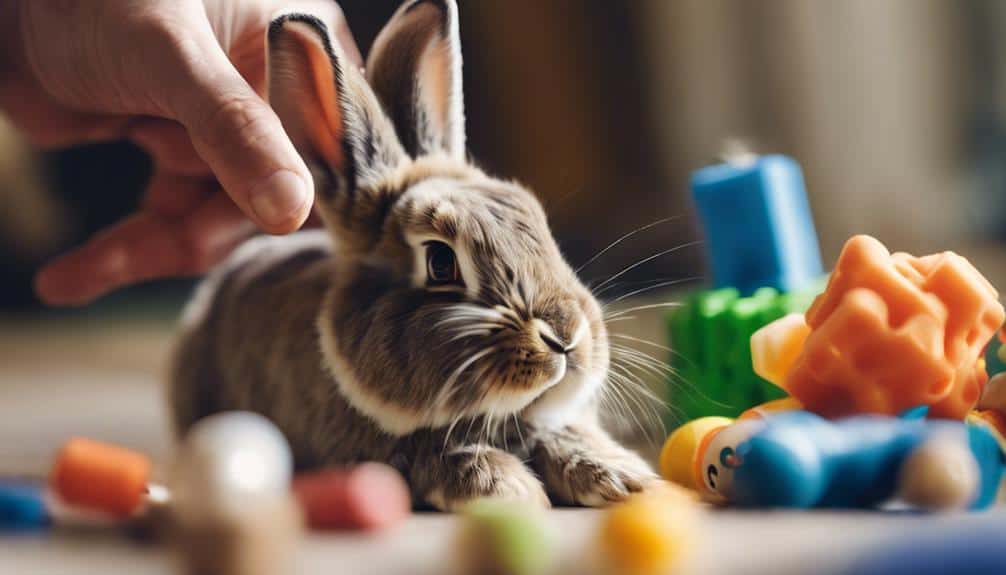
Dealing with biting behavior in rabbits can be concerning, but there's a way to address it effectively. One strategy that works well is to use positive reinforcement techniques. Instead of focusing on the negative aspect of biting, you focus on encouraging good behavior.
When your rabbit bites, it's natural to react. But reacting negatively can actually make the behavior worse. So, what can you do instead? One key method is to reward your rabbit for gentle interactions and ignore or redirect biting behavior. This helps them understand what is acceptable.
Here's how you can do it:
Positive reinforcement is a powerful tool. Reward your rabbit with treats or praise when they interact gently and avoid biting behavior. This encourages them to continue being gentle.
You can also try placing your hand in front of your rabbit for them to sniff and explore. Reward calm behavior with treats or praise. This helps them get used to your hand and reduces biting.
If your rabbit starts to bite, gently redirect their attention to a toy or treat. This distracts them from biting and teaches them that there are better ways to get attention.
| Strategy | Description |
|---|---|
| Positive Reinforcement | Reward your rabbit with treats or praise when they interact gently and avoid biting behavior. |
| Hand in Front | Place your hand in front of your rabbit for them to sniff and explore, rewarding calm behavior. |
| Redirect Attention | If your rabbit starts to bite, gently redirect their attention to a toy or treat. |
Conclusion
So, you're wondering why your adult male rabbit has suddenly started biting your hand? Well, it's probably due to hormonal changes or discomfort.
When rabbits are uncomfortable or in pain, they can get defensive and bite. And hormonal changes can also affect their mood and behavior.
To address this, you need to observe your rabbit's body language. Is he tense, aggressive, or fearful?
Once you understand what's causing the biting, you can work on improving his behavior.
One way to do this is by providing enriching activities to keep him engaged and stimulated.
You should also reward him for calm behavior, like when he's relaxed or gentle.
Another trick is to redirect his attention to toys or treats when he starts biting.
This can help him feel more comfortable and secure in his environment.

